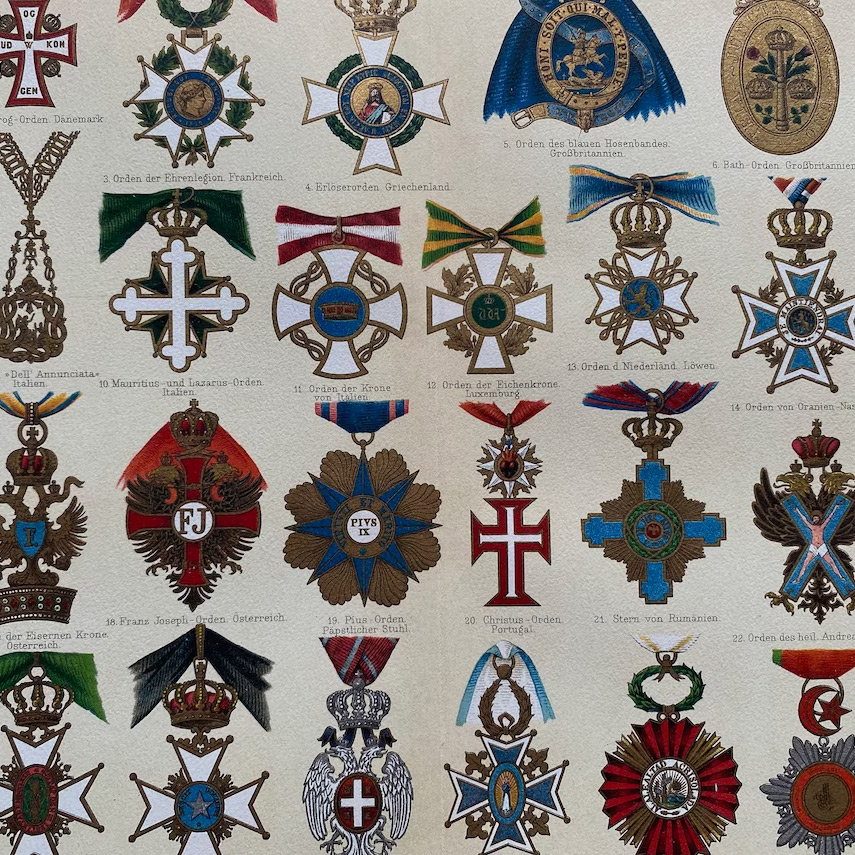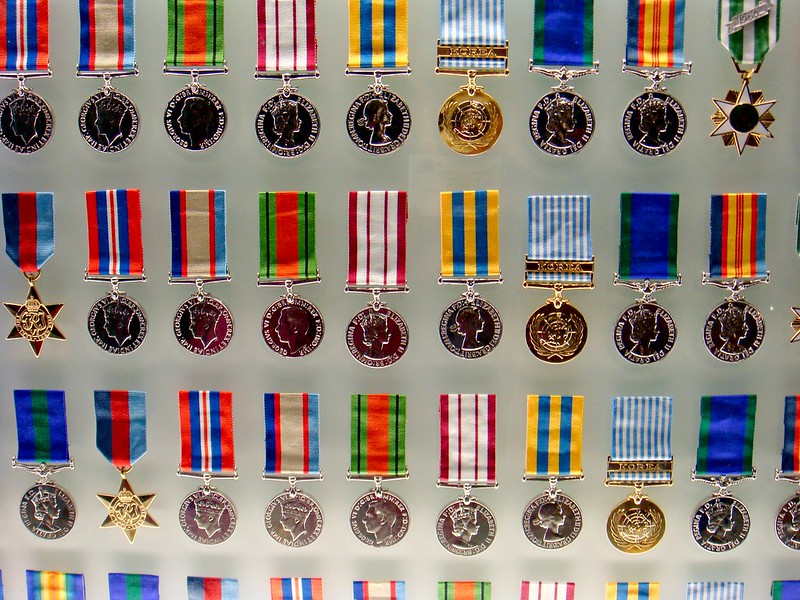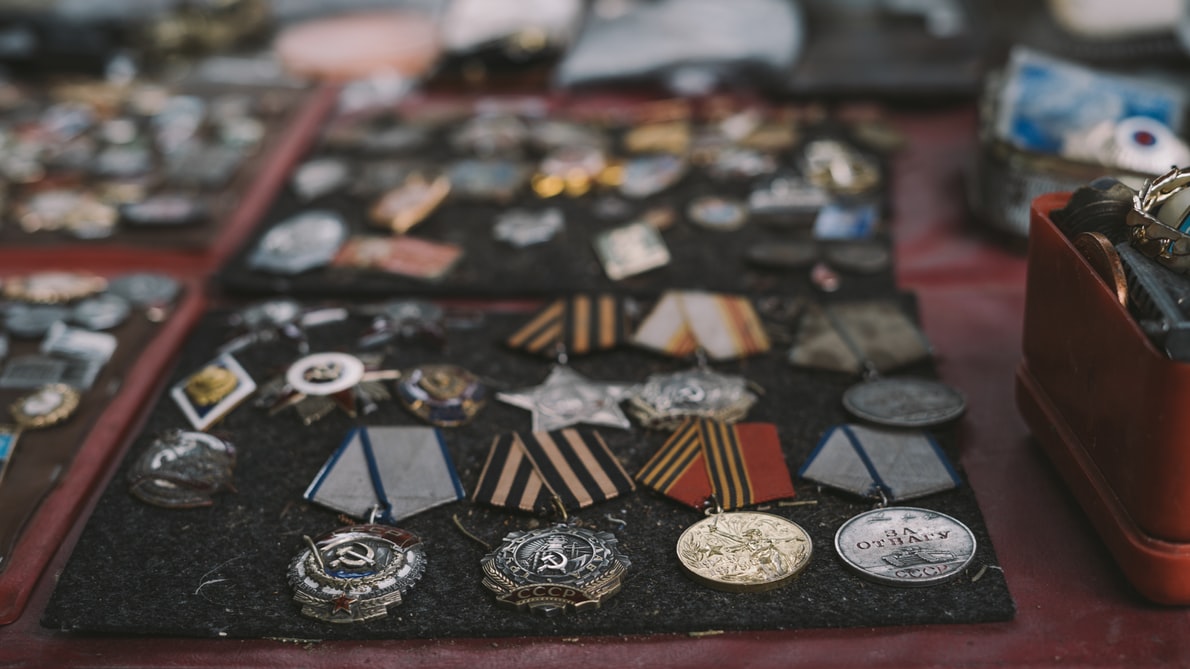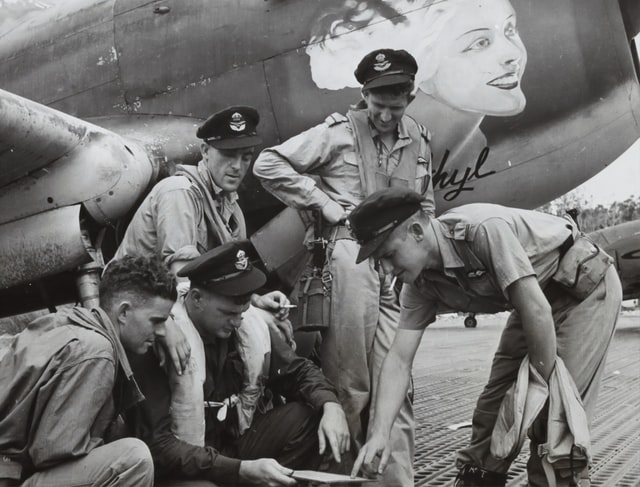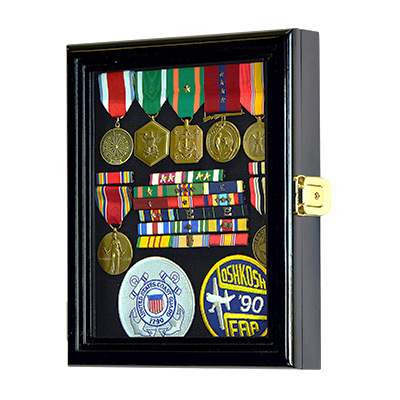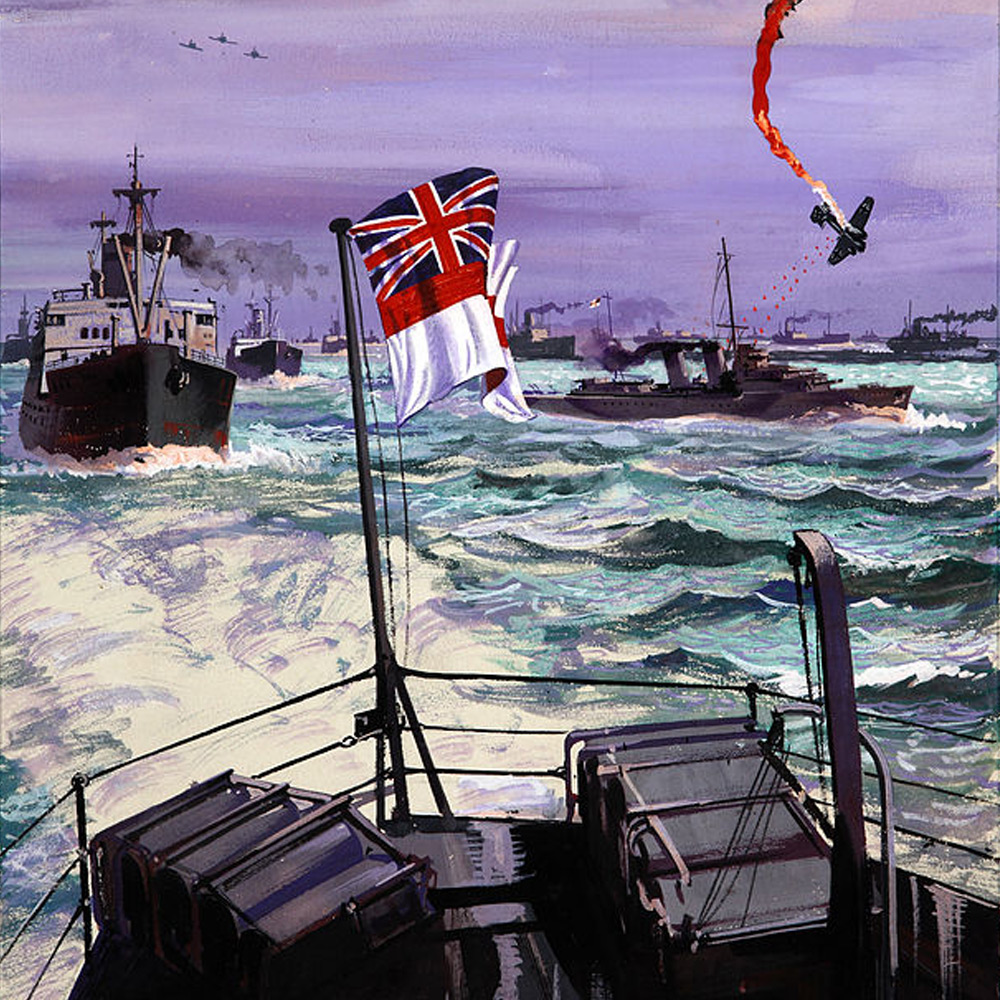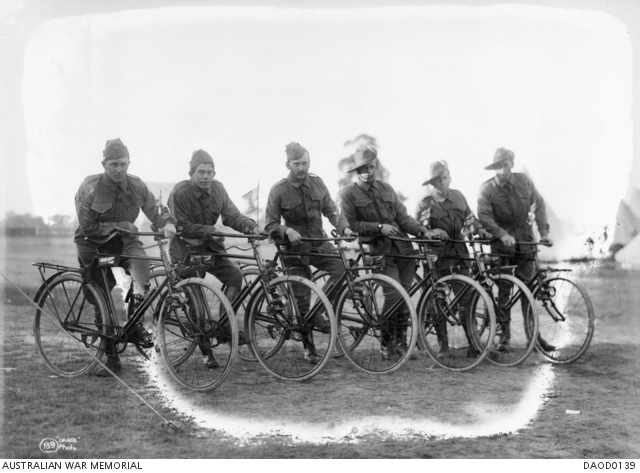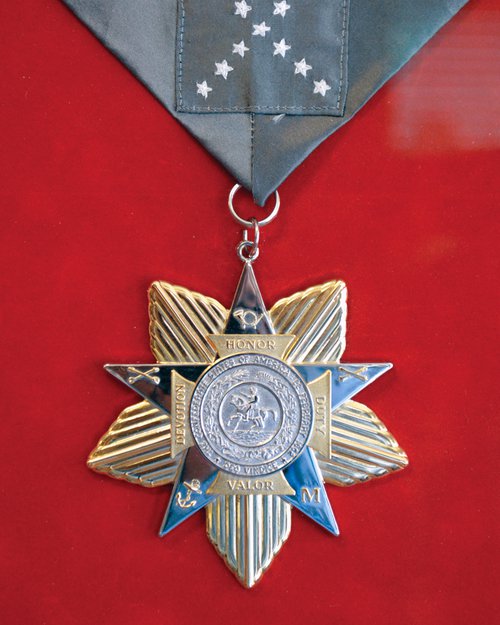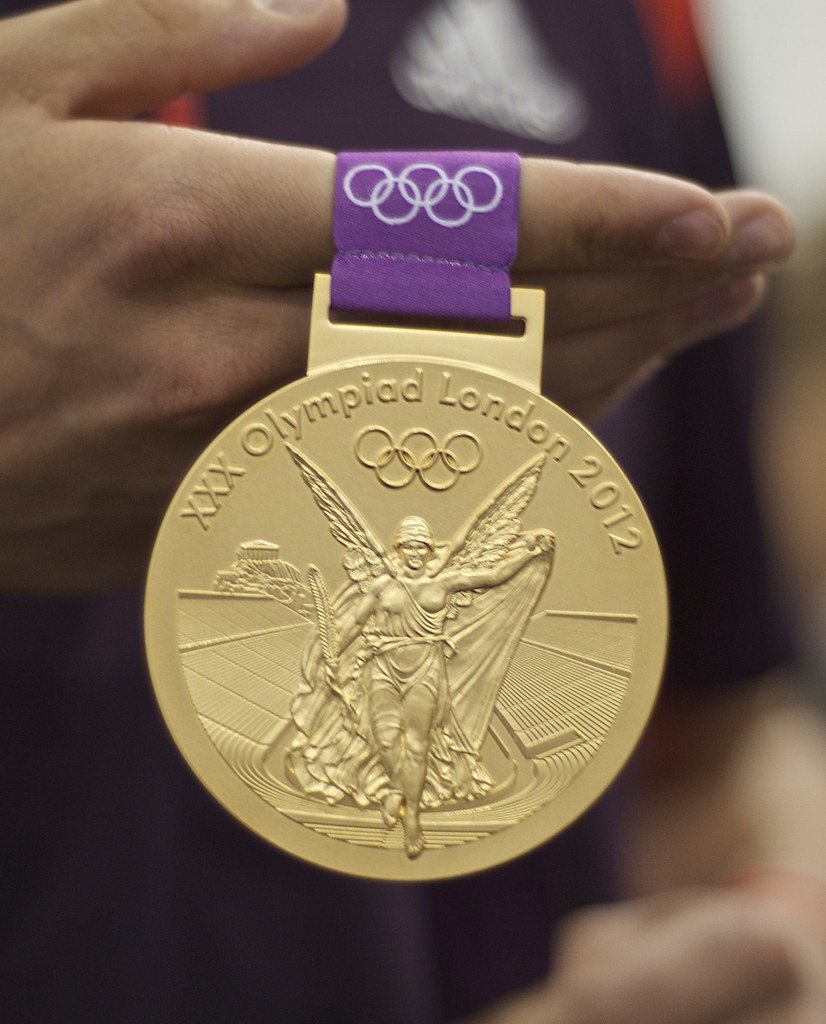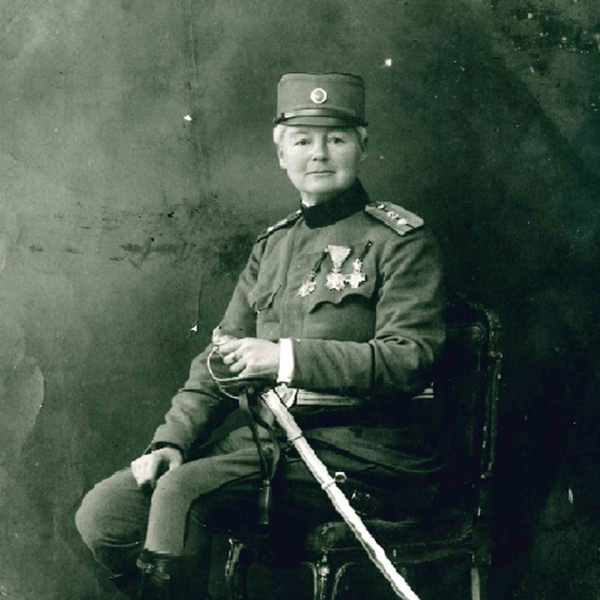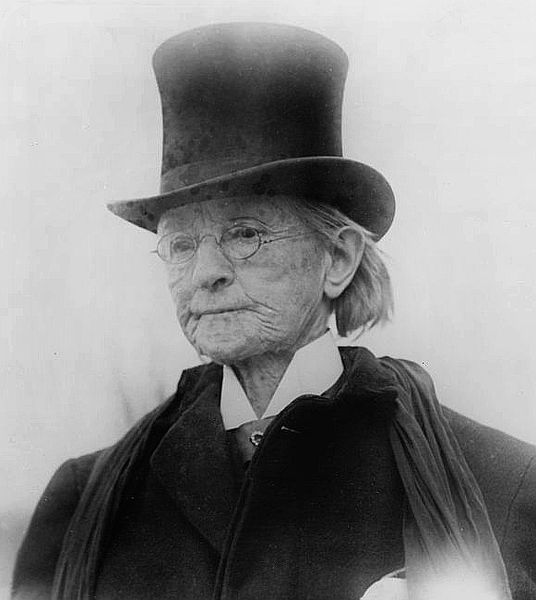Many civilian and military medals feature crosses. There are several different types, so not all of them can sound familiar to someone not used to collecting medals. In this article, I will share what the different types of crosses used in medals are (for example, Maltese Cross, Cross Pattée, Greek Cross, and others) and how you can easily identify them.
The Different Shapes of Military Medals
Many medals are cross-shaped. For example, the British Military Cross, the Prussian Military Merit Cross, or the American Distinguished Service Cross. However, not all crosses used in insignia are the same.
The Cross Pattée, for example, has arms that are narrower at the center and broader at the perimeter. This type of cross was popular in medieval times and can be seen in metalwork as old as 1,500 years. The Maltese Cross, on the other hand, has four arrowheads that converge in a central vertex, while the Latin Cross has a longer bottom arm and is often associated with Christianity.
Most Common Cross Types Used in Medals
Let’s go through the most common types of military crosses, how they originated, and how they are used in heraldry and medal design.
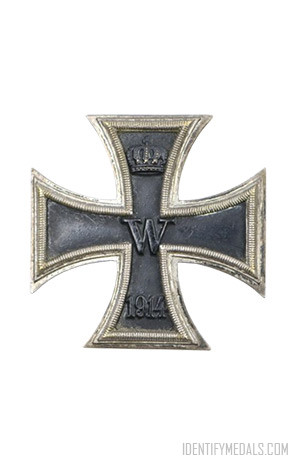
The Cross Pattée
The Cross Pattée (also referred to as cross patty, or cross paty, from the French croix pattée, meaning “footed cross“. In German, it’s called Tatzenkreuz, where Tatze also means foot) was originally a Christian cross.
It’s relatively easy to distinguish this cross from others: The arms are narrow at the center and get broader as they reach the perimeter. The same components are also usually flared in a curve, although they can be straight too. For example, the Order of the Iron Cross is shaped like a cross pattée.
The cross pattée has also been used by many monarchs and is often associated with crowns in Christian countries. It was also used by the Crusaders, Prussians, and Germans.
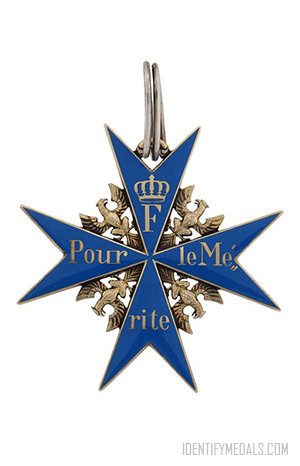
The Maltese Cross
The Maltese Cross consists of four “V”s or arrowheads that converge in a central vertex. This type of heraldic cross developed from earlier crosses that had eight points (often used during the 16th century).
The Maltese cross is associated with the Knights Hospitaller or the Order of St John and the island of Malta. The use of the Maltese cross is thought to have begun in the 16th century and continued through the crusades – although there are crosses of this type also associated with the coastal town of Amalfi in the 11th century (it’s believed the Duchy of Amalfi used it then for his minted coins). In the early 16th century, the Rhodian Cross had almost achieved this look.
The eight points of the Maltese cross have been given a number of symbolic interpretations. Many experts believe that they refer to the eight Langues of the Knights Hospitaller: Auvergne, Provence, France, Aragon, Castille and Portugal, Italy, Germany, and the British Isles.
Since then, it’s become a popular choice for various entities, including several military orders.
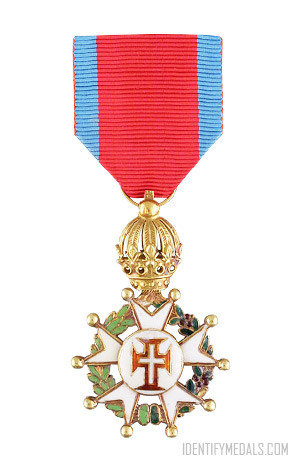
The Latin Cross
The Latin Cross is a type of cross in which the vertical beam is longer than the crossbeam (typically with a much longer bottom arm). In a broad sense, the Latin cross has been used to represent Christendom (as it symbolizes Jesus’ sacrifice for humanity).
Throughout history, the Latin Cross has been revered as a sacred symbol of faith and devotion. It adorns churches, cathedrals, and religious artifacts, serving as a visual representation of the Christian belief in salvation through Christ’s death and resurrection. For believers, the cross serves as a source of strength, hope, and spiritual renewal, inspiring reverence and contemplation of Jesus’ sacrifice and victory over death.
Beyond its religious significance, the Latin Cross has found its way into various aspects of art, culture, and everyday life. Still, when used in heraldry and medal design, the Latin cross is often also associated with Christianity. For example, as seen in the image, it’s used in the Brazilian Imperial Order of Christ.
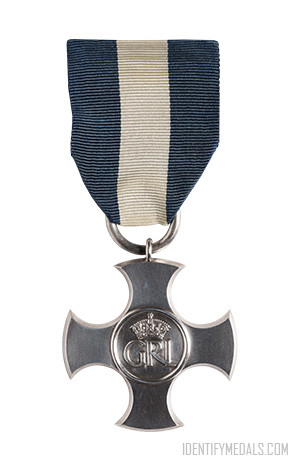
The Cross Patonce
A Cross Patonce is a style of cross typically found in heraldry and religious iconography. The term “patonce” comes from the French word “patte,” meaning “paw,” and describes the arms of the cross as ending in a rounded or floriated shape resembling the spread foot of an animal or the petals of a flower.
The cross patonce is characterized by arms that narrow towards the center and end in a distinct fleur-de-lis or trefoil shape. This design gives the cross a distinctive and elegant appearance, often associated with chivalry and heraldic symbolism.
In the context of military decorations, such as the Distinguished Service Order (DSO) described earlier, the cross patonce is a common design element, reflecting its heritage in heraldic tradition and its association with honor, valor, and distinguished service.
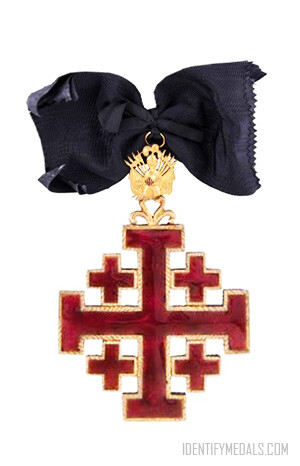
The Cross Potent
The Cross Potent, commonly recognized as the Jerusalem Cross, serves as a distinctive variation of the traditional Christian cross symbol. Its design comprises a cross with each arm culminating in three smaller crosslets, creating a visually striking and intricately layered emblem.
The term “potent” derives from the unique shape of the cross’s arms, evoking images of crutches or the sturdy handles akin to those of a walking stick. This distinctive feature not only adds a symbolic depth to the cross but also imbues it with a sense of resilience and support.
Historically, the Cross Potent holds profound significance, particularly in the context of the Crusades. As Crusaders embarked on their holy quests to reclaim Jerusalem and defend Christian lands, the Jerusalem Cross became a potent symbol of their faith and mission. Its presence on banners, shields, and armor served as a rallying point for Crusaders, inspiring courage and fortitude in the face of formidable challenges.
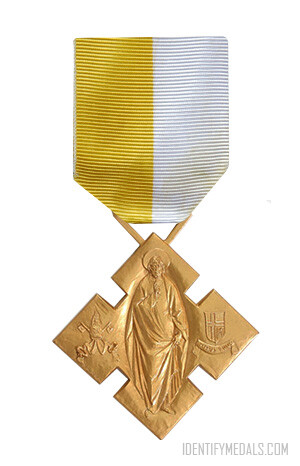
The Greek Cross
The Greek cross, also referred to as the crux immissa quadrata, is a distinctive variation of the Christian cross symbol. Characterized by its four arms of equal length, each intersecting at right angles, it presents a visually balanced and symmetrical form reminiscent of a plus sign (+). This cross design holds significant cultural and religious importance, particularly within the context of the Greek Orthodox Church, where it has been deeply ingrained in both architecture and religious iconography for centuries.
In architectural marvels of Byzantine origin, such as churches and monasteries, the Greek cross often takes center stage, adorning facades, domes, and interior spaces with its elegant simplicity. Its symmetrical layout, with each arm extending in cardinal directions, evokes a sense of harmony and equilibrium, reflecting the divine order and balance sought by believers.
Within religious iconography, the Greek cross holds profound symbolism, representing the fundamental tenets of Christianity.

